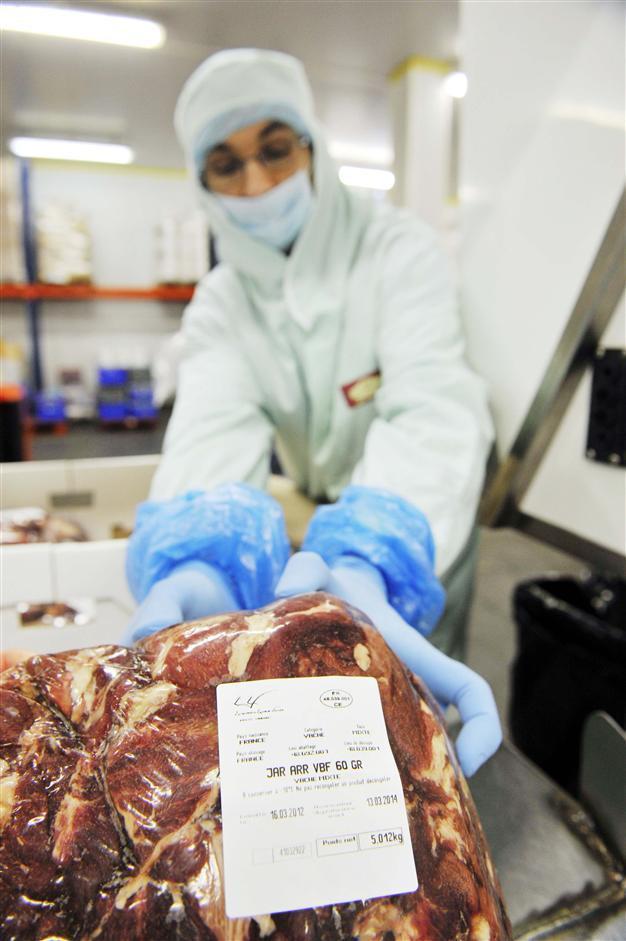5 percent horsemeat found in EU products
BRUSSELS - Agence France-Presse

A French employee shows the identification sticker on a bag of meat. AFP photo
EU-wide tests of beef products have found up to five percent horsemeat, according to the European Commission in a statement that was later removed from its website.The DNA testing was conducted after a widespread scandal in Europe over horsemeat being found in beef products which undermined consumer confidence in the food industry.
The European Commission briefly posted the up to five percent figure on its website but then removed the statement. More test results were expected later yesterday when the Daily News went to press, including country-by-country findings, officials said.
More than 2000 tests
The European Union executive also said horse carcasses tested showed 0.6 percent contamination for the potentially harmful phenylbutazone horse drug, or bute, which is banned from the human food chain. The Commission on Feb. 15 ordered more than 2,000 DNA tests on prepared meals labeled as containing beef, up to 150 tests per member of the 27-nation union, depending on its size, as well as the tests for the presence of the veterinary drug.
Commenting on the presence of bute, commission spokesman Frederic Vincent said “we reaffirm that there is no immediate danger in the European Union regarding this product.”
“You would have to eat hundreds of horse burgers for months to have problems,” he added.
Since meatballs in Ikea stores, sausages in Russia and frozen burgers in Britain’s Tesco chain were pulled from shelves by the millions, the results of the tests have been anxiously awaited by the food industry.
















